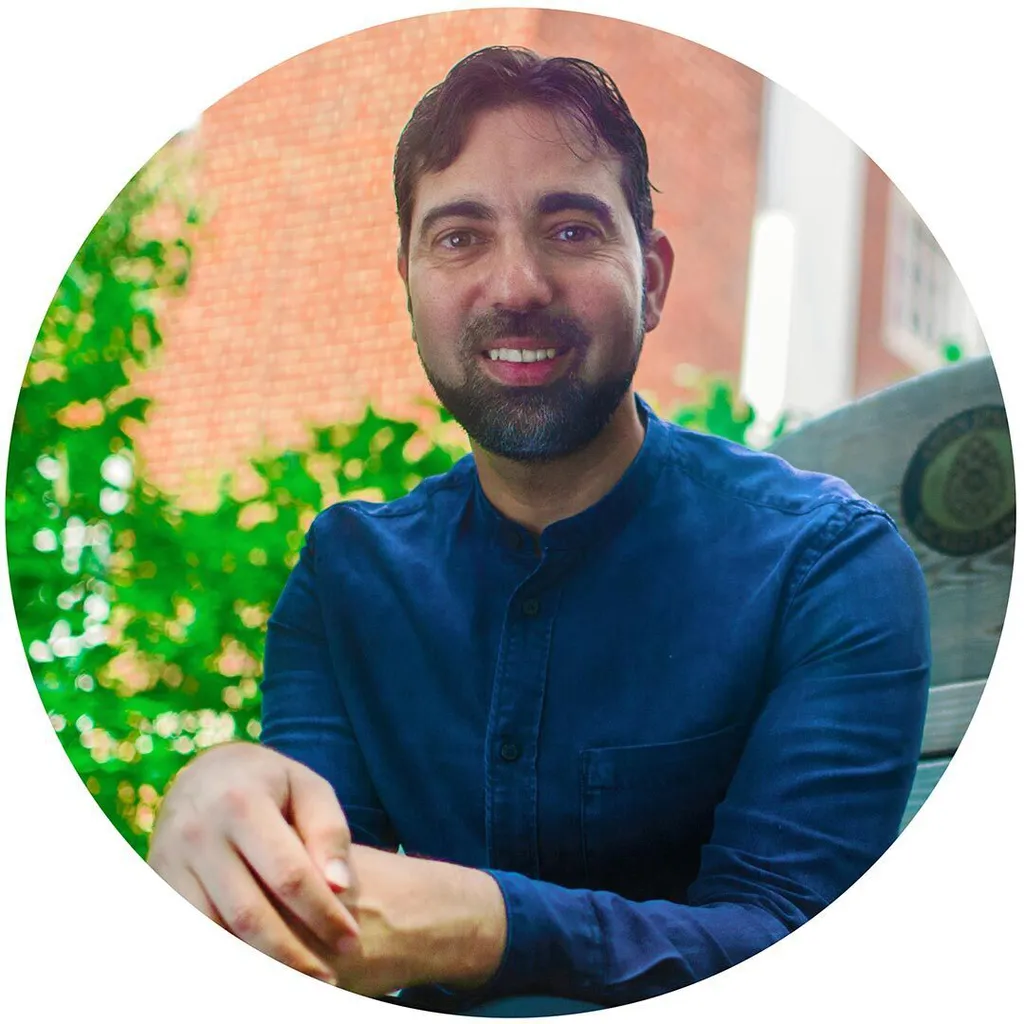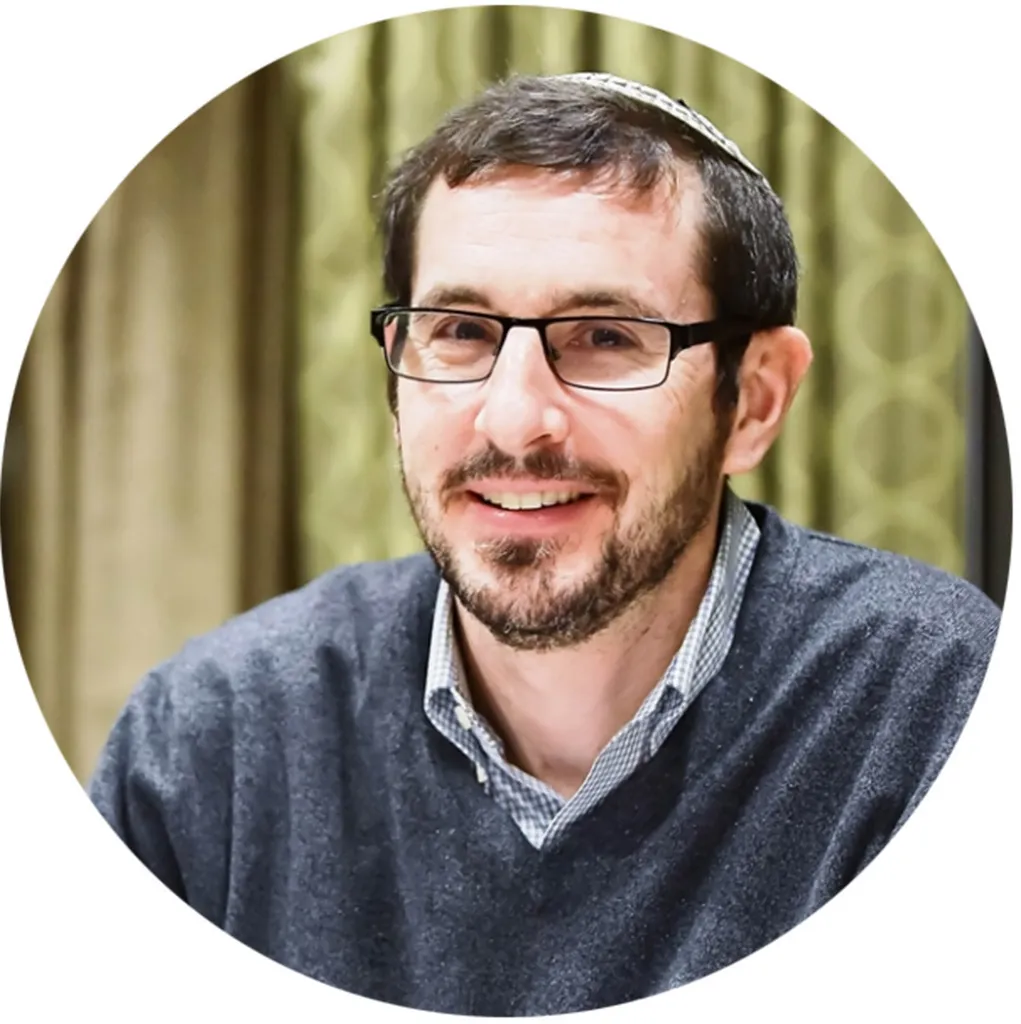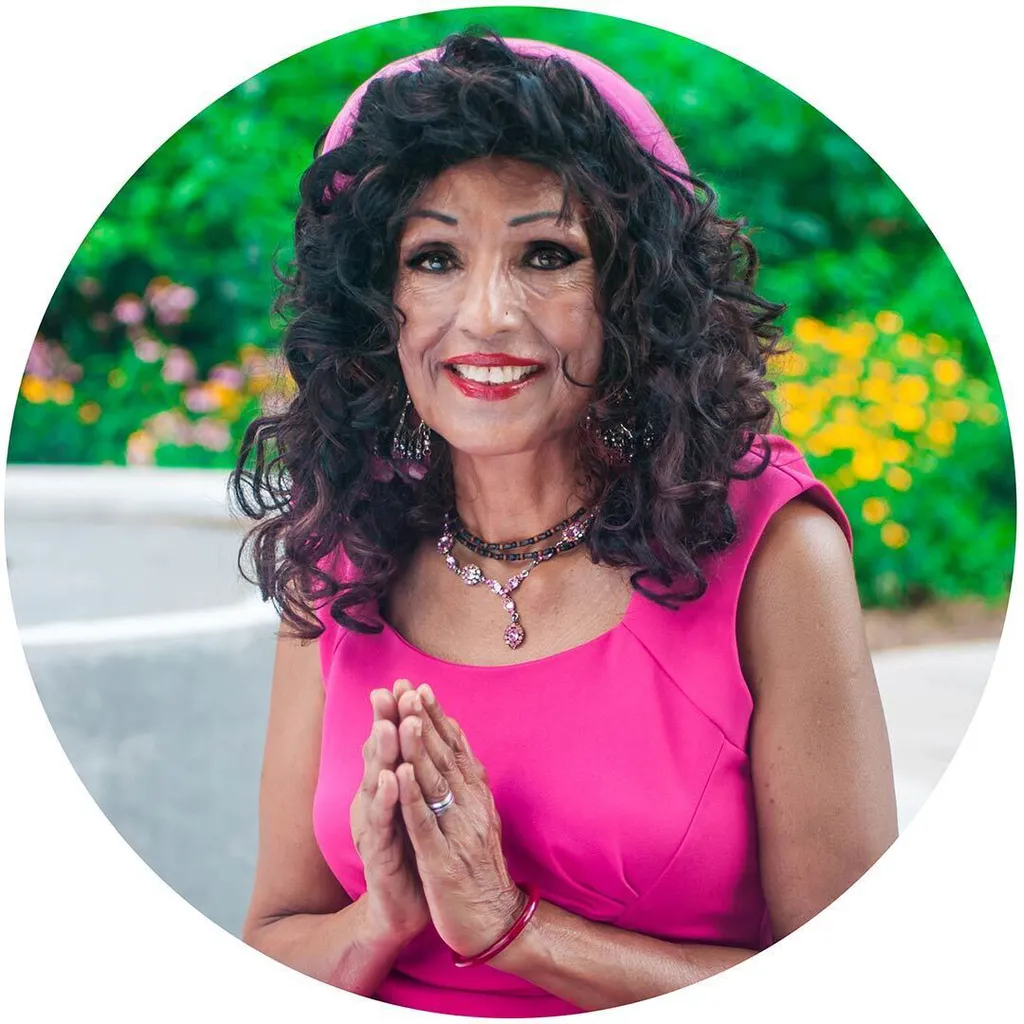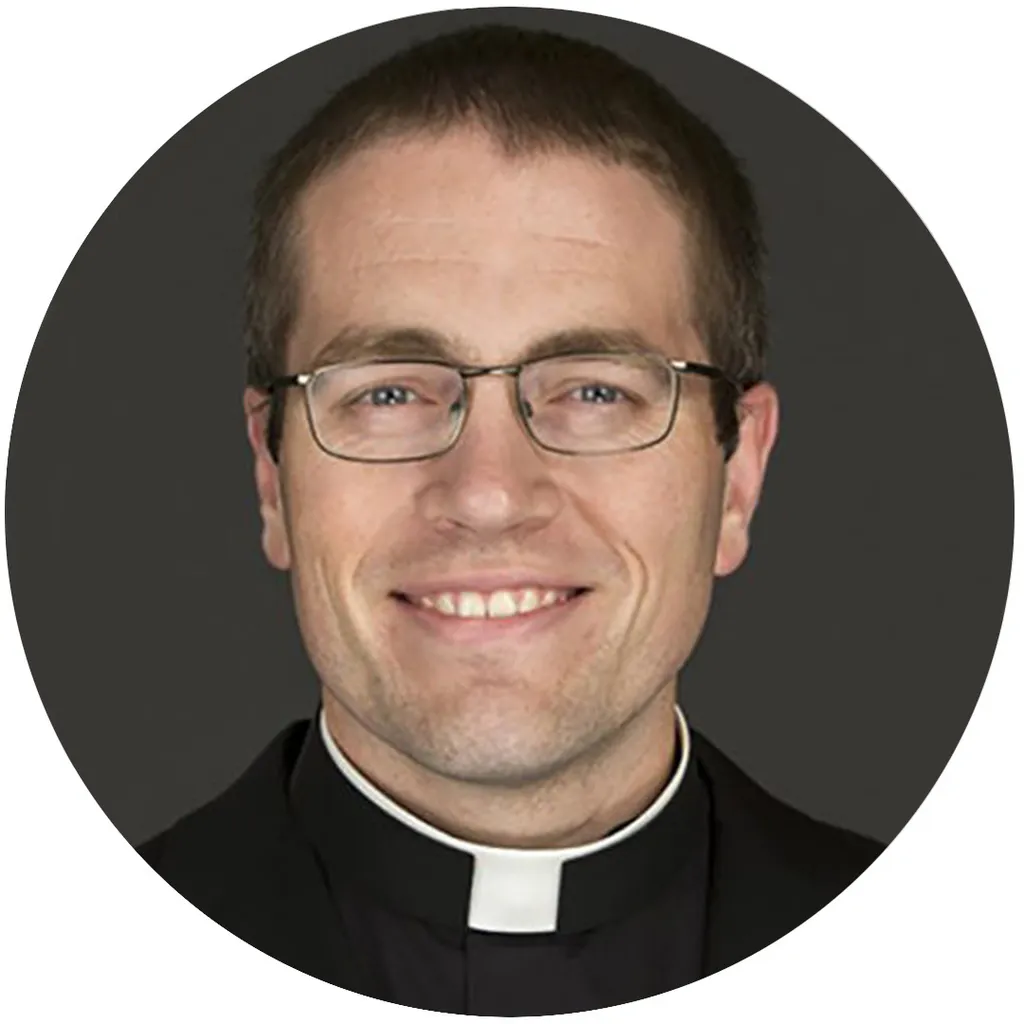- December 07, 2023
- By Karen Shih ’09
High on the hill above Baltimore Avenue, iconic Memorial Chapel stands as not just a landmark but a beacon, where the University of Maryland’s faith leaders offer anchoring and stability to students leaving their families for the first time.
About a dozen chaplains of different faiths and denominations shepherd students in their spiritual journeys. While Memorial Chapel serves as the hub, many have their own spaces on or around campus, such as Maryland Hillel, the Catholic Student Center (CSC) or the Muslim prayer space in Cole Field House.
No matter the tradition, the goals are the same: amid the more raucous sides of college life, to keep students engaged in the faiths they were raised in; to help them make sense of the world as they set off into adulthood; to guide them in giving back; and to celebrate special occasions and traditional holidays.
Maryland Today talked to Hillel Rabbi Ari Israel, Catholic Rev. Conrad Murphy, Hindu Rev. Kiran Sankhla and Muslim Imam Tarif Shraim to learn why working with college students is so unique, how they’ve helped students cope during this challenging semester and the special bond they share.
On What Brought Them to UMD and Serving College Students:

Shraim: I first came to UMD as a student in 1998. I had no idea how much we as human beings need people who take interest in us as we navigate our journeys and overcome our struggles. When the prior Muslim chaplain, Ali Darwish, showed up in my life with care and compassion, that made me say, ‘Wow, this is powerful.’ Before I knew it, I saw students coming to me for advice and help as well. I changed from my path in science and technology to providing pastoral care to the campus community, officially taking over the chaplain role in 2004.
The most fulfilling part of my work is one-on-one time with students and helping them grow spiritually and emotionally. This is the most formative time of their lives, and it can be hard to find someone who makes you feel seen and acknowledged and understood. I hold office hours in Memorial Chapel, but I often try to show up in their spaces, like at the student union, so that it’s easier for them to talk to me.
Israel: I’ve been a Hillel rabbi for 28 years, and I came to UMD in 2003. I love what Maryland stands for. I love the fact that we’re a state school with a diverse population from within the state and regionally and even nationally. I am inspired to show up to work every day by the energy, vitality and creativity of our students; one-on-one relationship-building and community development is what keeps me going year after year.
Students are coming to graduate with a degree in aerospace engineering, kinesiology, finance, and the goal at Hillel is to enable them to graduate with a ‘degree’ in Judaism: to look at the world with a Jewish lens and values, to learn how it fits with their career aspirations. We want our students to live by Hillel’s motto, “It’s not where you go but who you can become,” learning to care beyond the classroom about social justice, about volunteering, about helping others.
Sankhla: I’ve served at the University of Maryland since 1980, when I regularly spoke to classes about Hinduism, and officially became a UMD chaplain in 1992, when I was also recognized for being the first university Hindu chaplain in the United States. I also serve the University of Maryland, Baltimore County and George Washington University campuses.
I’m there for my students anytime. They’re trying to finish their degrees, but they can become so emotional during times of crisis. I tell them to call me, even in the middle of the night.
Murphy: I originally came to the D.C. area to study politics at GW. But I realized perhaps serving in the House of Representatives as a staffer was not going to be what really changes lives and hearts. I previously served at the Church of the Holy Redeemer in College Park, helping out with UMD students and alumni, and then became the UMD Catholic chaplain four years ago.
My role is sacramental, so I celebrate services, hear confessions, do spiritual direction. I have a lot of one-on-one meetings with students, and we also try to equip our student leaders to do more outreach to their peers, helping to mentor and guide them. I’m proud that we have such a vibrant community that’s well known in campus ministry circles as one of the premier East Coast programs.
On Daily and Weekly Activities:

Israel: Hillel is a broad tent community. We host about 30 Jewish student groups under our umbrella, ranging from religious (including Reform, Conservative and Orthodox) to social to politically active. We do a lot of activities on North Campus and with the Greek community. We have a dining hall where we serve kosher food. Each Friday, we’ll have about 400 to 500 students come for Shabbat services and free dinner.
Sankhla: I’m on campus three days a week, leading prayers Tuesday, Thursday and Sunday evenings. We have about 25 students at each one, and more during special programs. I’m also the faculty adviser for the Hindu Student council, the Bhagavad Gita club, BAPS and more. Sometimes I also accompany students to local temples.
Shraim: Dozens of students come to our daily prayers (in Cole Field House five times a day), and at least 250 come to our two communal Friday services in Nyumburu. We also hold social gatherings like barbecues, game nights, cultural nights and charitable events; there’s a big need for belonging, especially as minorities.
Murphy: We have daily Mass as well as Sunday Mass, which draws 400-500 students, and our Wednesday dinner usually has about 200 students. Students can come to the CSC all day, from 7 a.m. to 10:30 p.m. They can pray in the chapel, play ping pong, do homework. There’s 25 student-led Bible studies, choir practice in the evenings and mission-oriented organizations that help the homeless in Baltimore or work with the poor in Belize.
One of the most fun things I do is serve as one of the chaplains for the Terps football team. I say Mass before every game for coaches and student athletes who are Catholic. It’s been great to get to know them and have a personal stake in cheering them on.
On Supporting Students Through Struggles:

Sankhla: This is a very unique time of uncertainty in Ukraine, in Israel, in Palestine. We are praying for them all regularly—we are praying for peace using our prayer beads, chanting 108 times in Sanskrit. We also support students through their personal challenges. During COVID, we had students who were visiting family in India. One student’s father died, and her mother decided not to send her back to America. But we kept in touch, and now she’s back on campus after three years.
Israel: Regarding conflict in Israel and Gaza, our student leaders are resilient and amazing—they’ve really stepped up. They hosted a vigil that reached 1,200 people. They marked the hostages on McKeldin Mall. They raised money for resources in Israel. They helped about 500 students get to D.C. for the pro-Israel rally.
There’s been some antisemitism on campus. Some students are fearful and afraid. Some have sisters or brothers serving in the military forces. We have a student whose first cousin is captured in Gaza. The Counseling Center has been amazing, and we’ve also had parents who are psychologists and other people volunteering their time to support our students in their time of need.
Shraim: Wars overseas affect people locally as well. We have Palestinian students directly affected by the Israel-Palestine conflict and the tragic events unfolding in Gaza. Some of these students have family in Palestine that they are worried about and some have lost loved ones. Our Muslim students are also experiencing fear and concern because of the rising wave of Islamophobia and hate crimes against Muslims, Arabs and Palestinians here in America—three Palestinian college students were shot in Vermont recently.
This is a critical area of work for me, so I try to bring the students together to heal. This happens ad hoc; I’m often in the prayer space, so after formal prayers, we add prayers for the victims and talk about what they’re feeling. You see the tears, the longing for understanding. And I also schedule gatherings to listen as they navigate academic demands as they cope with grief, shock and fear. Students need to have space to reflect, feel reassured they are supported and safe.
Murphy: There’s a huge uptick in mental health crises these last few years. We have a relationship with the Catholic Counseling Service, which sends someone to the CSC once a week to supplement UMD’s counseling services. We stay in close touch with our community; when a student died on campus this fall, we texted every student that’s registered with us to check on them, to let them know what resources were available.
I do a lot of walking with students, helping them to develop a deeper relationship with their faith and more resiliency. Teaching them that if they have a relationship with God, no matter what is happening in the world, in the political sphere, that they are valued and loved.
On Celebrations:
Israel: For Hannukah, we’ll be lighting candles at hopefully 100 locations across campus. How do we spread light during this period of darkness? As winter approaches, there’s more ominous weather, more hours of darkness; we want to bring that light. There will be food and celebration, spaces to gather, helping students to recognize they’re not alone.
Murphy: An alum has a farm and gifted us this big old Christmas tree this year, 15 feet tall. As the students say, “The vibes are so great.” We have a big devotion to Our Lady of Guadalupe, whose feast day is Dec. 12. We hold a big dinner for our student leaders and host an open house with Christmas cookies. Our choir does a lesson in carols. It’s just a joyful time.
Shraim: Ramadan stands out because it’s a monthlong season of fasting, from dawn to sunset. It’s a spiritually uplifting time that brings the community together. We plan a special worship every night and we break our fasts together, with 100-200 students coming for nightly dinners. We also hold educational activities so students can bring their friends to eat and learn.
All of that leads to the festival that caps off the month: Eid. Many students go home to celebrate with family, so we often plan a big celebration for a few days after, featuring cuisine from different cultures and skits and dances, honoring that our students who come from all over the world. It’s something they deeply appreciate and get excited about each year.
Sankhla: In the fall we celebrated Diwali in the Grand Ballroom at Stamp with more than 2,000 students. The Festival of India is a huge program, sponsored by local temples, where we offer a free vegetarian feast, meditation, henna and share our beliefs through a huge diorama on the cycle of life, which is fun for students to explore. We welcome spring with Holi on McKeldin Mall, where students throw different colored powders. The message is: We’re all different shapes and colors but we are all children of the same creator.
On Interfaith Activities:

Murphy: It’s difficult on a college campus to be religious. So even though we believe different things, we all believe something, and that builds a camaraderie among the chaplains and our communities.
Israel: Chaplains fall under Stamp Student Union, and Director Marsha Guenzler-Stevens and Associate Director Donna Lim, as well as Chapel Coordinator Denise McHugh, are excellent allies and partners and friends to all of us. The Catholic priest just brought multiple students to our solidarity Shabbat. The Muslim chaplain and I are good friends. We just met up the week of Thanksgiving at Starbucks to check in on each other.
Sankhla: I think UMD is a role model for other universities in the country. There’s so much programming and interfaith dialogue, and it’s only getting better. My colleagues at GW and UMBC come here to learn how we do it.
Shraim: We are a close community of chaplains and receive a lot of support from our university. Though we’re busy with our own communities, we make time to personally connect or host interfaith activities. There’s trust between the chaplains, and we support and help each other learn. It really makes our big campus feel smaller.
This is part of a monthly series that looks behind the scenes at “what it takes” to keep the University of Maryland humming and create a vibrant campus experience. Got an idea for a future installment? Email kshih@umd.edu.
